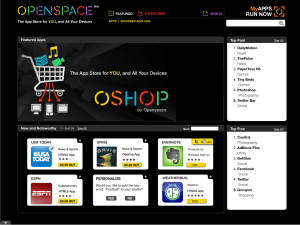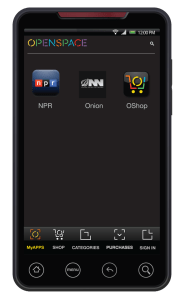 There are a number of systemic obstacles facing app developers today, with limitations in distribution and monetization channels being chief among them. Oh, and then there’s fragmentation, as developers have to create different versions of the same app for different phones, different browsers, different OSes, and so on.
There are a number of systemic obstacles facing app developers today, with limitations in distribution and monetization channels being chief among them. Oh, and then there’s fragmentation, as developers have to create different versions of the same app for different phones, different browsers, different OSes, and so on.
While Apple’s app store provides developers with some great tools to make money (like subscriptions and in-app billing), once you’re in the Apple ecosystem, you’re locked in. What’s more, different carriers have their own set of rules that often limit, say, the distribution of third party apps. AT&T, for example, doesn’t let its subscribers download apps from third party app stores. (Though, with the launch of Amazon’s app store, renewed pressure on the carrier spurred it to announce late last week that it will be lifting these restrictions for its Android customers downloading on Amazon. Of course, when that will happen is anyone’s best guess.)
Openspace, a Colorado-based startup, is trying to hurdle these obstacles by offering an app store that enables you to discover and purchase an application once and use it anywhere, anytime, on any device –- smartphones, tablets, laptops and desktops, Mac or PC. The app store, currently in private beta, will allow consumers to purchase and install web apps, games, music, and books; however, unlike its nominal competitors (Apple’s app store, the Android Marketplace, GetJar, Chrome, etc.), Openspace is designing an innovative user license that enables consumers to buy once and use anywhere.
The user license mixed with its use of HTML5 on its website, browser extensions, and mobile apps, means that you can but a game on your PC at the office and bump it over to your smartphone to play on the train ride home. The Openspace store will also allow syncing between registered devices and allow users sell or gift their apps. Just like the real world! (Here’s a link to the TOS.)
Now, this all sounds great for the end-user, but what about developers? Generally speaking, if you’re a new app platform, attracting developers can be tricky. It seems to happen in one of two ways: Either your platform is so successful that it can’t be ignored, or it’s the new sexy, hot platform, and devs will look silly if they don’t hop on board. Seeing as this is the case, the Openspace store has its work cut out.
The founders of Openspace, Randy Watler and Robert Reich, who are themselves app developers, told me the store is a launch partner of Mozilla’s Web App Project (which released its iteration for developers last month) and are leveraging some of Mozilla’s technology. They hope that being among the first adopters of Mozilla’s third party app store tech will lend some credence and lustre to their cause.
And to further stoke the fires, Openspace has designed a developer co-op to govern its app store. The motivating principle behind the cooperative is the reclamation of app monetization and distribution strategies by — and for — developers. By signing up for the co-op, developers can help set the agenda and write the rules that govern the sale of their apps on the Openspace store.
 The co-op is free to join, so as to how it will make money: Reich told me that it will earn a percentage of revenues from the Openspace store. Participating in the cooperative works like this: Developers get a unique customer referral code to use when referring customers to Openspace. The referral code is then embedded when the customer installs OShop (what the founders are calling the mobile version of Openspace), and each time a user makes a purchase using OShop, the developer’s unique referral code is tracked. This allows devs to receive credit and payment each time a referred customers buys an app, song, book or movie using the mobile store.
The co-op is free to join, so as to how it will make money: Reich told me that it will earn a percentage of revenues from the Openspace store. Participating in the cooperative works like this: Developers get a unique customer referral code to use when referring customers to Openspace. The referral code is then embedded when the customer installs OShop (what the founders are calling the mobile version of Openspace), and each time a user makes a purchase using OShop, the developer’s unique referral code is tracked. This allows devs to receive credit and payment each time a referred customers buys an app, song, book or movie using the mobile store.
In terms of compensation and distribution, co-op members receive 70 percent of revenues from each app sold on the Openspace store, plus a bonus when their referred customers buy apps — and members get algorithmic priority in the store’s search results.
Further co-op perks allow developers to pre-populate app download numbers from other platforms, and pre-set developer ratings based on prior reviews from other platforms. And, if a developer joining the cooperative brings their existing users to Openspace, they will receive a 5 percent bonus every time one a customers buys an app, a song, or a book. For more on distribution, click here.
Openspace currently supports free and paid apps. Reich told me that in-app purchasing and subscriptions are currently in development and will be available shortly after Openspace’s launch, which is tentatively set for later this month.
The Foundry Group has led early seed funding in Openspace, supplemented by angel investors like David Cohen and Zelkova Ventures.
Openspace and its cooperative are, at the very least, interesting ideas, but I’d love to hear what you developers think. It’s obviously going to be extremely difficult to compete against Chrome’s web app store, but chime in if you’re so inspired.